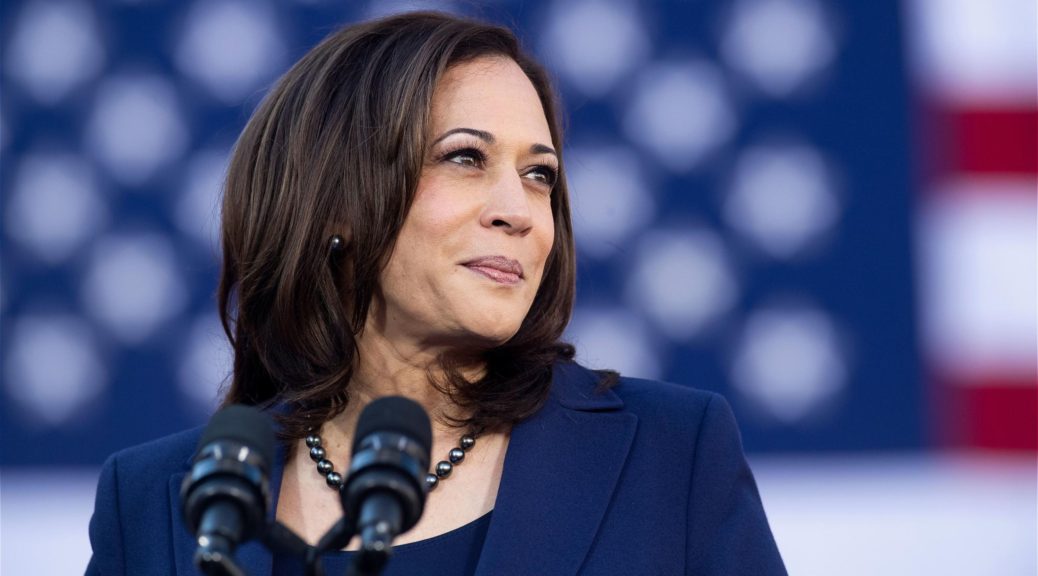NASHVILLE, Tenn. (TSU News Service) – Tennessee State University President Glenda Glover and other members of the TSU family say U.S. Vice President Kamala Harris and what she has the potential to achieve will impact generations to come.

The world tuned in to Washington, D.C. on Wednesday to see the inauguration of Harris and Joseph Biden Jr., who became the 46th president of the United States.
“Words cannot express how proud I was seeing Kamala Harris, an African-American woman and HBCU graduate, sworn in as vice president of the United States. This is a great day for our country, historically black colleges and universities, and for all of us!” said TSU President Glenda Glover. “African-American women have been the backbone of this country, and now an African-American woman has ascended to the second highest office in the nation; with the opportunity to create policies that will impact us for generations to come. I particularly look forward to legislation that will enhance TSU as a premiere institution and our entire HBCU family.”

Harris is now the nation’s first female vice president, first black vice president and first black female vice president.
“From this day forward, it will be normal for a woman to be the vice president of the United States, for a black person to be vice president of the United States, and for a citizen of Asian descent to be vice president of the United States,” said Samantha Morgan-Curtis, a Women’s Studies faculty member and dean of the College of Liberal Arts at TSU.
“When we watched Justice Sonia Sotomayor, the first woman of color to sit on the Supreme Court, swear in Kamala Harris as the vice president of the United States, we recognized that representation matters and works. This lesson is as important for young men, as it is for the young women.”

Dominique Davis, the president of TSU’s Student Government Association, agreed.
“Vice President Harris’ victory is exactly what the world needed to see transpire, especially African-American women,” said the senior business administration major from Danville, Illinois. “For far too long, African-American women have been underrepresented. However, Vice President Harris, along with many other power houses, have certainly began to shift that reality. I have faith that Vice President Harris will guide and elevate America as we continue to navigate through these unprecedented times.”
Dr. Learotha Williams, a history professor at TSU, said some now ask the question: Is Vice President Kamala Harris the most powerful woman in world history?

“If one can make the argument that the United States—for reasons good and bad—is the most powerful nation in human history, then her place as vice president, as the last voice in the room before the president makes an important decision, and her position, which is but a metaphorical and physical heartbeat from the presidency, then the answer is yes,” said Williams. “Her position and the power associated with it are not titular or ceremonial, they are real.”
Dr. Robert Elliott, head of TSU’s Department of Music, said he realized Harris’ impact on future generations while talking to his granddaughters – 9 and 10 – at breakfast before the inauguration was televised.
“One told me, ‘This is like the first time in the history of the world that we will have a woman vice president,’” recalled Elliott. “The other said, ‘Yeah, and in four or eight years, maybe we will have the first woman president because all of the ones before were men.’ It is great to see these young girls feeling empowered and believing that there are no limits to what women can do or be.”

Other women before Harris to seek the position of president or vice president include Shirley Chisholm, who in 1972 became the first Black American and the first woman to seek the Democratic presidential nomination. Geraldine Ferraro was the first female vice-presidential candidate on a major party ticket, in 1984. In 2008, Alaska’s then-governor Sarah Palin was Republican John McCain’s running mate.
Department of Media Relations
Tennessee State University
3500 John Merritt Boulevard
Nashville, Tennessee 37209
615.963.5331
About Tennessee State University
Founded in 1912, Tennessee State University is Nashville’s only public university, and is a premier, historically black university and land-grant institution offering 39 bachelor’s degree programs, 24 master’s degree programs, and seven doctoral degrees. TSU is a comprehensive research intensive institution with a R-2 Carnegie designation, and has a graduate school on its downtown Avon Williams Campus, along with the Otis Floyd Nursery Research Center in McMinnville, Tennessee. With a commitment to excellence, Tennessee State University provides students with a quality education in a nurturing and innovative environment that prepares them as alumni to be global leaders in every facet of society. Visit the University online at tnstate.edu.
